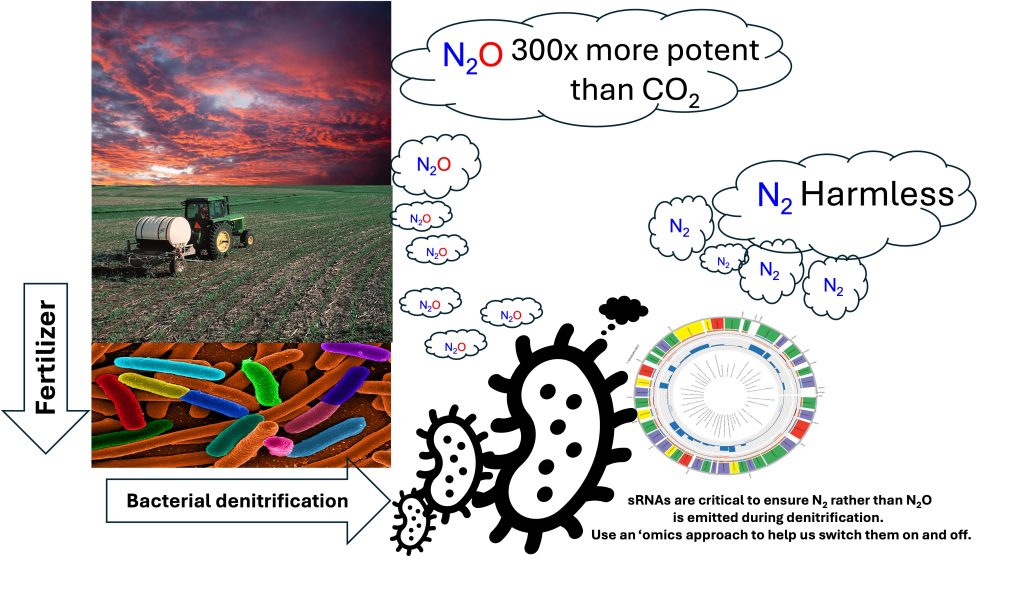Project Description
Supervisors
Dr Gary Rowley, Biological Sciences, University of East Anglia – contact me
Professor Jon Todd, Biological Sciences, University of East Anglia
Dr Andrew Gates, Biological Sciences, University of East Anglia
Dr Linda Bergaust, Norwegian University of Life Sciences, Faculty of Chemistry, Biotechnology and Food Science

Project background
Nitrous oxide (N2O) is a major greenhouse gas, with 300-fold greater warming potential than carbon dioxide. A major source of N2O comes from soil microbes utilising nitrogen-based fertilisers rather than oxygen to breathe in a process called denitrification. The final step in denitrification, the reduction of N2O to N2, is carried out by the enzyme nitrous oxide reductase, NosZ. However, NosZ does not always work in natural environments and we know that denitrifying organisms make a substantial contribution to N2O emissions. An expanding global population means fertiliser use will increase to meet food demands. Without intervention this will lead to increased N2O emissions.
We have a solid understanding of the denitrifying microbes in different environments, but our understanding of the “how” and “when” denitrification is switched on and off is relatively poor. This is urgently needed so that agricultural practices might be manipulated to encourage the reduction of N2O to N2. Our team have made significant contributions to the understanding of regulation of denitrification including the role of bacterial small RNAs (sRNAs). sRNAs have critical roles in regulation of a multitude of physiological processes. We provided the first evidence that manipulation of sRNAs impacts N2O emissions.
We seek an enthusiastic individual with a background in microbiology to join the team. You will combine a range of microbial physiology, microbiology and functional genomics approaches to further our understanding of the contribution of sRNA to regulation of denitrification in the model bacteria Paracoccus denitrificans. You will determine the conservation and significance of these regulatory systems in a range of other denitrifiers from diverse environments (soil, marine) to identify key nodes of regulation in the environment that may be used to enhance N2O reduction.
Comprehensive training will be provided in all areas. The successful individual will have the opportunity to visit the lab our of collaborators in Oslo. Professional and personal development of all members of the Rowley laboratory is a major priority, and the team are supported to attend a diverse range of internal and external courses. Presentation of results at international conferences will be an important aspect of the training provided.
Acceptable first degree subjects: Biological Sciences, Biochemistry, Microbiology
